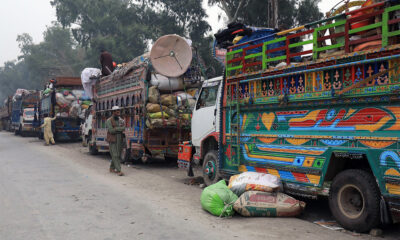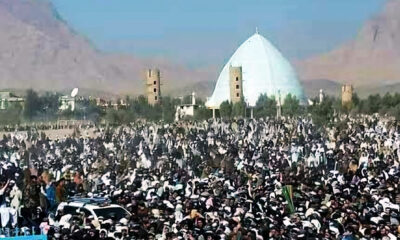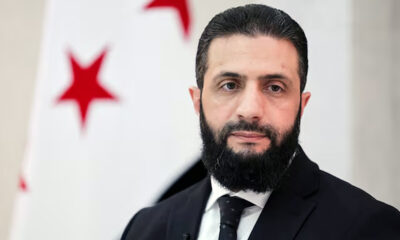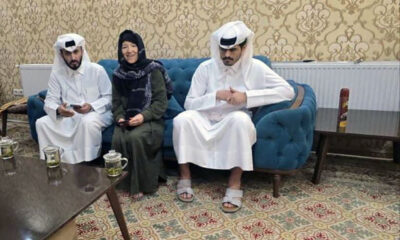Latest News
Republicans and Democrats agree U.S. war in Afghanistan wasn’t worth fighting: poll
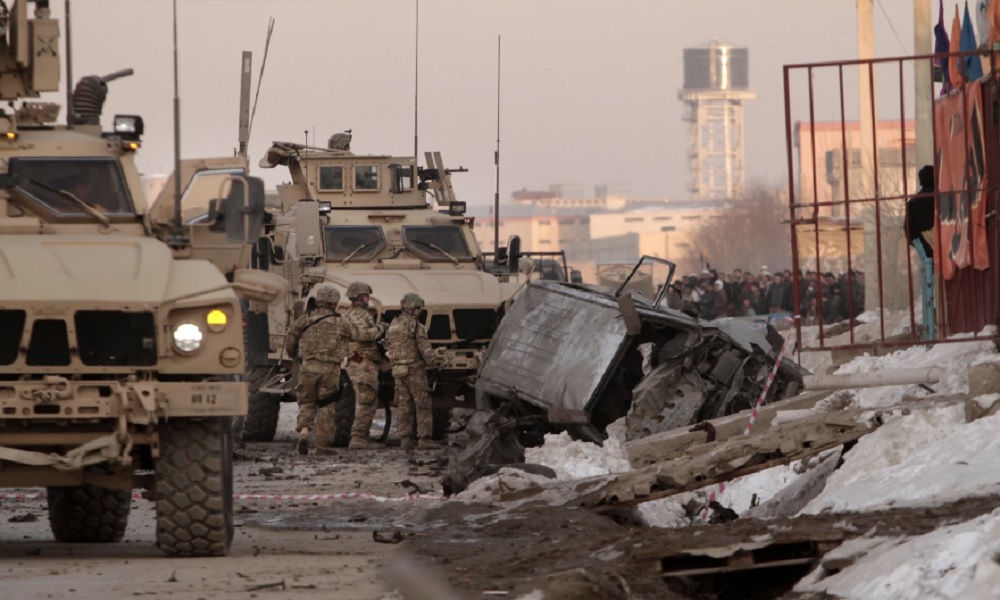
At a time when Americans are deeply divided along party lines, a new poll shows considerable agreement on at least one issue that is the United States’ two-decade-long war in Afghanistan was not worth fighting, the Associated Press reported on Wednesday.
The poll from the Pearson Institute for the Study and Resolution of Global Conflicts and The Associated Press-NORC Center for Public Affairs suggest the US withdrawal from Afghanistan, seen by many as chaotic and ill-planned, may have been a turning point for President Joe Biden’s approval ratings, which started a downward slide around that time and have not recovered since.
Two-thirds of Americans say the war in Afghanistan was not worth fighting; 65% of Democrats and 63% of Republicans agree on that evaluation. Many have doubts about how successful the U.S. was at accomplishing more specific goals such as eliminating the threat from extremists or improving opportunities for women.
“It was unwinnable from the beginning,” said Martin Stefen, a 78-year-old Republican who lives in Carson City, Nevada. He said the U.S. should have paid closer attention to what happened to the Soviet Union, which waged a decade-long war in Afghanistan during the 1980s only to pull out in defeat in 1989. And, he said, the U.S. should have had a more specific end goal for how it wanted the war in Afghanistan to go and a better understanding of the country’s tribal politics.
That thought was echoed by Justin Campbell, a 28-year-old Democrat from Brookhaven, Mississippi. He said it was clear after the U.S. was entrenched in Afghanistan that it didn’t have very deep support. Campbell said he’s not pleased that the Islamic Emirate of Afghanistan (IEA) is back in control.
“But I don’t think it was worth us staying over there,” he said.
Maliha Chishti, a lecturer and research associate at the Pearson Institute, said she was struck by the fact that after 20 years of war, so many American and Afghan lives lost and billions spent, the vast majority said they felt Afghanistan was not friendly to the U.S. or was an outright enemy. She said the responses demonstrate a frustration on the part of Americans and the need to ask questions about what went wrong with America’s attempts to intervene in Afghanistan.
“We invested all of this money to really build a state from scratch and when we left, that state completely collapsed,” she said.
Many Americans also say the United States was not successful with many of its key objectives in Afghanistan.
Eliminating the threat of terrorism in Afghanistan during the war is still seen as an important goal by many across party lines: 46% of Democrats and 44% of Republicans called that highly important. But only about one-quarter in each group said this successfully happened during the war.
Slightly fewer than half — 46% — say the U.S. and its allies were successful at the goal of apprehending or killing the individuals who were responsible for the Sept. 11 attacks, compared with 25% who think the U.S. was unsuccessful in achieving that goal.
Only about one in five Americans say the U.S. successfully improved opportunities for women and girls in Afghanistan, with 43% saying such efforts were unsuccessful. But many said advancing the rights of women and girls in Afghanistan was important to them. About three quarters said that goal was extremely, very or somewhat important to them.
Latest News
Pakistan finalizes plans to detain and deport Afghans as deadline nears
Pakistan has granted Afghan migrants, both undocumented and those holding ACC cards, a deadline of March 31 to voluntarily leave the country.
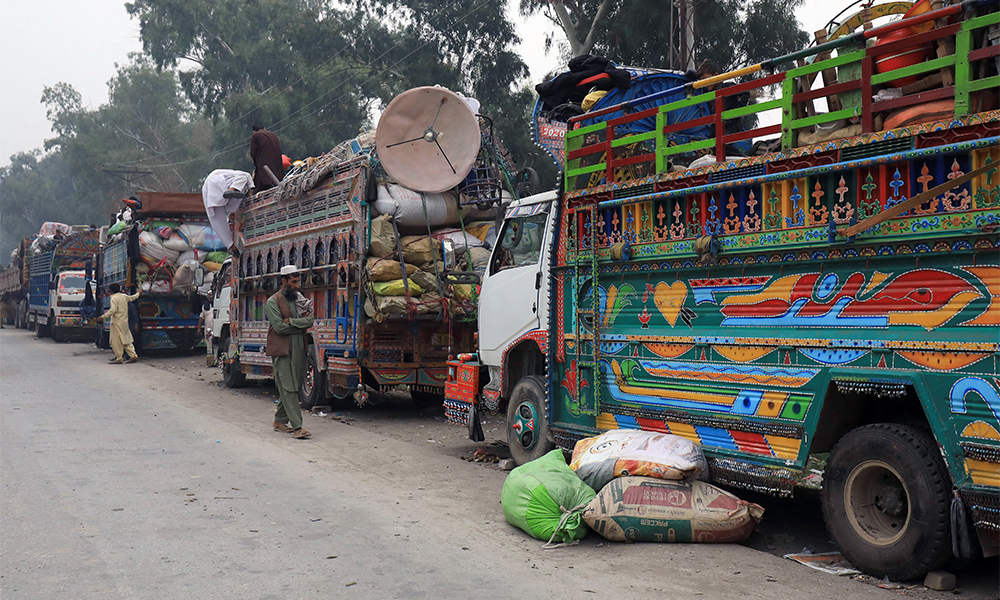
Officials in Pakistan have completed arrangements to detain and expel Afghan citizens following the March 31 deadline for their voluntary return to Afghanistan. This move is part of the country’s plan to address the growing concerns regarding the status of Afghan migrants in Pakistan.
A high-level meeting on Friday, chaired by Interior Minister Mohsin Naqvi, reviewed the measures to repatriate Afghan Citizen Card (ACC) holders. This meeting focused on ensuring the effective execution of the government’s deadline and the logistics surrounding the return process.
Despite requests from the Afghan government and human rights organizations, Pakistani authorities have firmly rejected extending the deadline for the return of ACC holders. The Pakistani government had initially set the deadline for the end of March, and the expulsion process will move forward as planned.
Mohsin Naqvi also revealed that Talal Chaudhry, the State Minister for Interior, would travel to the provinces to assess and address any challenges and potential issues in the process of Afghan migrants’ return.
Meanwhile, Pakistani security forces have detained at least 932 Afghan migrants in Rawalpindi, as the deadline for the expulsion of Afghan migrants with ACC cards approaches.
Human rights organizations have strongly condemned Pakistan’s recent decision to expel Afghan refugees, labeling it a violation of international law and a potential humanitarian crisis. They argue that many of these refugees, including human rights defenders, political activists, and victims of gender-based violence, fled Afghanistan to escape persecution and are now at risk of facing harm if deported.
The Human Rights Commission of Pakistan (HRCP) has expressed deep concern over the government’s ultimatum for undocumented immigrants to leave by March 31, warning that this could lead to a humanitarian disaster. They highlight that such forced repatriation violates international customary law and could adversely affect vulnerable groups, including women, children, the elderly, and individuals with disabilities.
Amnesty International has called on Pakistan to halt the detentions, deportations, and harassment of Afghan refugees, emphasizing that these actions violate the principle of non-refoulement, which prohibits returning individuals to places where they face risks of persecution. They stress that deporting Afghan refugees, especially women and girls, could deny them access to safety, education, and livelihoods.
Pakistan has granted Afghan migrants, both undocumented and those holding ACC cards, a deadline of March 31 to voluntarily leave the country.
However, Pakistani officials confirmed that Afghan migrants holding “PoR” cards are not at risk of being expelled until June 30.
Meanwhile, the International Organization for Migration (IOM) reported a sharp decline in Afghan returns and deportations during the first half of March. Between March 1 and 15, returns dropped by 67 per cent, while deportations fell by 50 per cent compared to the previous reporting period (February 16-28).
Latest News
Eid prayer led by IEA leader in Kandahar: Mujahid
Abdul Salam Hanafi, the Deputy Prime Minister for Administrative Affairs, called on opposition groups to return to Afghanistan and participate in the country’s reconstruction.
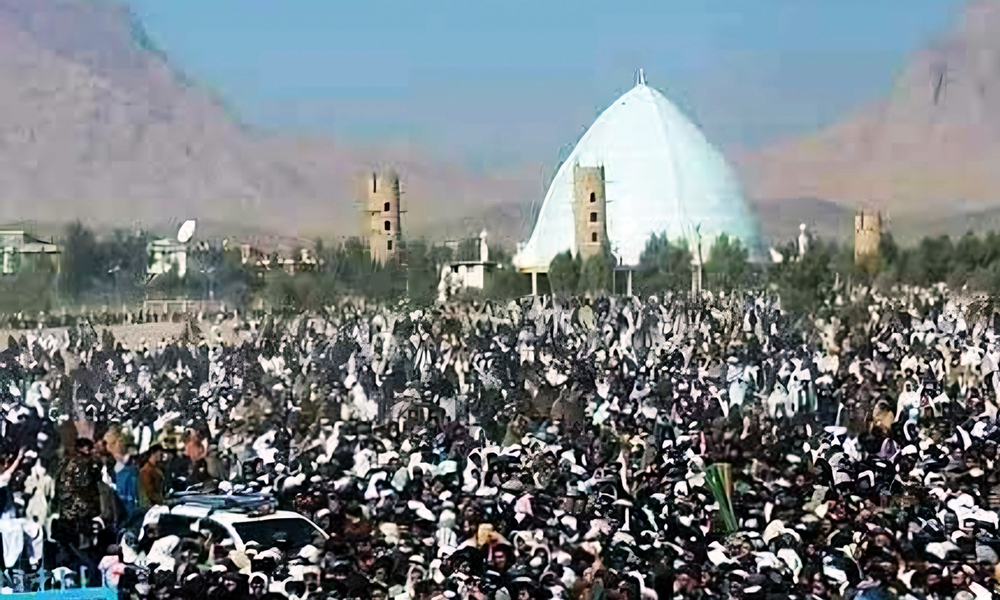
Zabihullah Mujahid, the spokesperson for the Islamic Emirate, announced on Sunday that the Eid al-Fitr prayer was held at the Eidgah Mosque in Kandahar, where Hibatullah Akhundzada, the Supreme Leader of the IEA, led the prayers.
Thousands of people attended the event, marking a significant religious occasion.
Other IEA senior officials gathered for the Eid prayer at the ARG (Presidential Palace) in Kabul.
Mullah Abdul Ghani Baradar, the Deputy Prime Minister for Economic Affairs, took the opportunity to address the public, stating that the Islamic Emirate is ready to engage with the world based on mutual respect. He also emphasized the importance of unity and solidarity among the Afghan people.
Baradar stressed that rebuilding the country requires internal unity and that no foreign entity can achieve this task for Afghanistan. On security, he highlighted the achievements of the past three years, asserting that under their administration, Afghanistan has become fully secure.
He reaffirmed that the IEA is committed to fostering international relations through an “economy-driven policy.”
Abdul Salam Hanafi, the Deputy Prime Minister for Administrative Affairs, called on opposition groups to return to Afghanistan and participate in the country’s reconstruction.
Hanafi reiterated the IEA’s desire for economy-driven relations with all regional and global powers based on mutual respect.
Mohammad Yousuf Wafa, the Governor of Balkh, also affirmed that the current system will not be undermined. He stated, “This system was established through great sacrifices, and it is our collective duty to defend it.”
The Eid prayers and the speeches of the IEA leadership underscored a message of unity, security, and a desire for positive international engagement.
Latest News
Syria’s president al-Sharaa forms new transitional government
The government will not have a prime minister, with Sharaa expected to lead the executive branch.
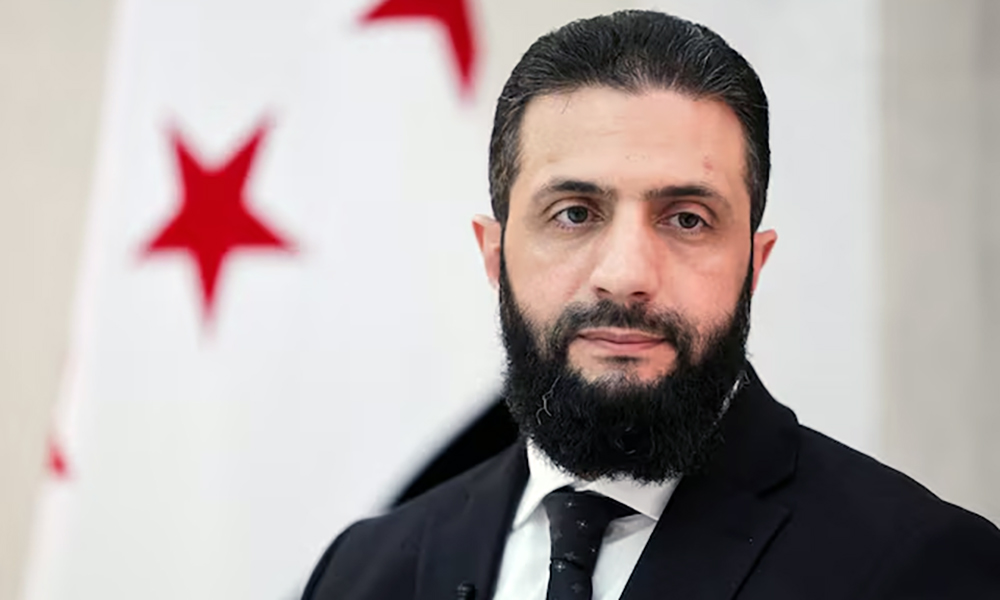
Syrian President Ahmed al-Sharaa announced a transitional government on Saturday, appointing 23 ministers in a broadened cabinet seen as a key milestone in the transition from decades of Assad family rule and to improving Syria’s ties with the West, Reuters reported.
Syria’s new Sunni Islamist-led authorities have been under pressure from the West and Arab countries to form a government that is more inclusive of the country’s diverse ethnic and religious communities.
That pressure increased following the killings of hundreds of Alawite civilians – the minority sect from which toppled leader Bashar al-Assad hails – in violence along Syria’s western coast this month.
The cabinet included Yarub Badr, an Alawite who was named transportation minister, while Amgad Badr, who belongs to the Druze community, will lead the agriculture ministry.
Hind Kabawat, a Christian woman and part of the previous opposition to Assad who worked for interfaith tolerance and women’s empowerment, was appointed as social affairs and labor minister.
Mohammed Yosr Bernieh was named finance minister, read the report.
It kept Murhaf Abu Qasra and Asaad al-Shibani, who were already serving as defence and foreign ministers respectively in the previous caretaker cabinet that has governed Syria since Assad was toppled in December by a lightning rebel offensive.
Sharaa also said he established for the first time a ministry for sports and another for emergencies, with the head of a rescue group known as the White Helmets, Raed al-Saleh, appointed as the minister of emergencies.
In January, Sharaa was named as interim president and pledged to form an inclusive transitional government that would build up Syria’s gutted public institutions and run the country until elections, which he said could take up to five years to hold.
The government will not have a prime minister, with Sharaa expected to lead the executive branch.
Earlier this month, Syria issued a constitutional declaration, designed to serve as the foundation for the interim period led by Sharaa. The declaration kept a central role for Islamic law and guaranteed women’s rights and freedom of expression, Reuters reported.
-

 Sport5 days ago
Sport5 days agoAfghanistan eliminated from Asian Beach Soccer Championship
-

 World4 days ago
World4 days agoSecretive Chinese network tries to lure fired US federal workers, research shows
-
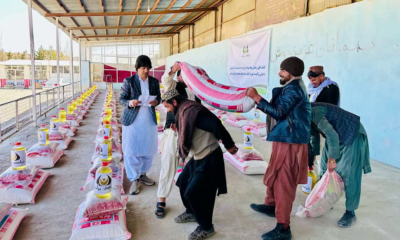
 Latest News5 days ago
Latest News5 days agoDozens of needy families in Ghazni get much needed food aid from Bayat Foundation
-

 Latest News4 days ago
Latest News4 days agoAfghanistan has the right to access Amu River’s water: Uzbek minister
-

 Sport5 days ago
Sport5 days agoAFC Asian Cup 2027 Qualifiers: Myanmar defeat Afghanistan 2-1
-

 Latest News3 days ago
Latest News3 days agoAmnesty international urges Pakistan to halt Afghan deportations
-

 Climate Change4 days ago
Climate Change4 days agoUN and ICRC warn of serious water shortage in Afghanistan
-

 International Sports4 days ago
International Sports4 days agoIPL 2025: Punjab Kings secure thrilling 11-run win over Gujurat Titans


